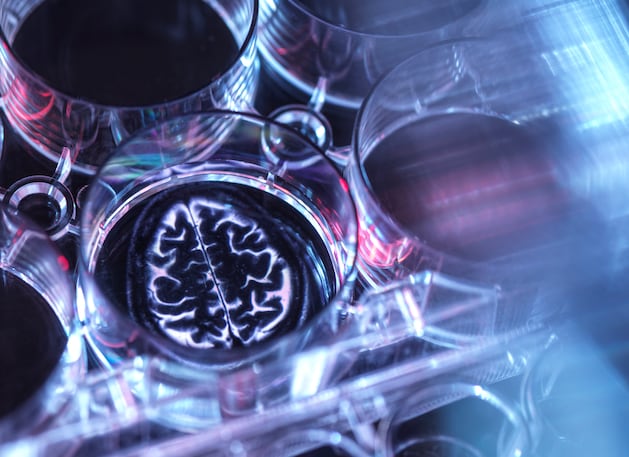In Germany alone, around 1.8 million people currently suffer from dementia, most of them from Alzheimer’s. But there are also sufferers who show no mental impairment despite the brain deterioration. Researchers are now on the trail of this Alzheimer’s mystery.
There is still no way to cure Alzheimer’s. So far, the only thing that can be done is to slow down the progression and alleviate the symptoms with medication. The exact reasons why healthy nerve cells in the brain break down are still not fully understood. According to the Alzheimer Research Initiative, it is only certain that two different protein deposits in the brain are characteristic of Alzheimer’s disease: beta-amyloid plaques and tau fibrils.
However, a scientific phenomenon is that there are people who, despite these deposits in the brain, show no cognitive impairment. They are therefore resilient and do not show any of the typical Alzheimer’s symptoms such as
Scientists assume that up to 30 percent of older people have significant deposits in their brains that are typical of Alzheimer’s without showing any symptoms. Why this is the case, however, is a mystery. “What happens to these people at the molecular and cellular level was not yet clear,” explains Luuk de Vries from the Netherlands Institute for Neuroscience in a press release. Together with other scientists, he has now examined this phenomenon in more detail.
For the study, they searched the Dutch brain database, which stores tissue samples from around 5,000 deceased people who suffered from various brain diseases – including extensive documentation of their medical history. There they actually found brain samples from twelve people who were resilient and had no symptoms during their lifetime – despite the Alzheimer’s deposits in the brain.
Upon closer examination, they discovered four peculiarities. “When we examined gene expression, we found that a number of processes were altered in the resilient group,” explains de Vries.
Although these results are important, they do not tell us what the cause and effect of Alzheimer’s disease is. “It is still difficult to determine from human data which process triggers the disease process,” says de Vries. This can only be proven by changing something in cells or animal models and observing what happens.
“That is the first thing we need to do now,” stresses de Vries. “But one thing is clear. If we find the molecular basis for resilience, we will have new starting points for the development of drugs that could activate resilience-related processes in Alzheimer’s patients.”
However, researchers are certain that exercise or cognitive activity plays a role in delaying Alzheimer’s symptoms. It was recently discovered that people who receive a lot of cognitive stimuli, such as through demanding work, can develop more Alzheimer’s-related pathological changes in the brain without experiencing any symptoms.
Age is considered the biggest risk factor for Alzheimer’s. However, there are many factors that reduce the risk of developing the disease. As the Alzheimer Research Initiative reports, studies show that people are less likely to develop the disease if they follow the following twelve tips:
1. Exercise: What’s good for your heart is also good for your brain. This includes getting enough exercise – at least 2.5 hours a week is ideal.
2. Mental fitness: Learn new things – even as you get older. This keeps your brain active. Whether it’s a musical instrument, a language or using a computer, try something new.
3. Healthy diet: Follow the classic Mediterranean diet. Eat lots of fruit and vegetables, olive oil and nuts. Prefer fish instead of red meat.
4. Social contacts: Activities are more fun in pairs or in a group and your brain cells are challenged. Arrange to do sports, play music, play cards or cook together.
5. Reduce excess weight: Make sure that you don’t weigh too much. A healthy diet and regular exercise will help you achieve this.
6. Get enough sleep: Make sure you get enough good sleep so that your brain can detoxify and recover.
7. Don’t smoke: Smoking also damages your brain. Stop smoking, it’s never too late.
8. Avoid head injuries: Take care of your head in everyday life and when playing sports and, for example, wear a helmet when cycling.
9. Check your blood pressure: Have your blood pressure checked regularly. High blood pressure should definitely be treated.
10. Check your diabetes: Keep an eye on your blood sugar level. If it is consistently too high, you should take action in consultation with your doctor.
11. Treat depression: Take good care of yourself. If you feel listless or depressed for a long period of time, it is a good idea to see your doctor to determine the cause. Depression should not be left untreated.
12. Pay attention to hearing loss: Take it seriously if you notice that your hearing is getting worse. A hearing aid can be a great way to correct a loss of hearing.















